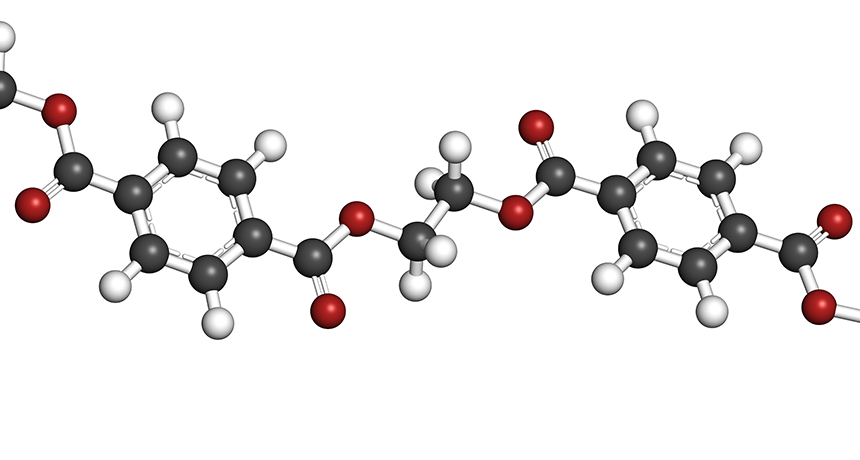Discovering the Varied Applications and Advantages of Polymers in Different Industries
Polymers, with their varied series of residential properties and functionalities, have become vital in numerous markets, each enjoying distinct benefits from their application. Polymers. From enhancing safety and security and efficiency in the automotive sector to transforming medical devices in the health care market, polymers play a critical role. Their green nature is changing the landscape of sustainability methods. As we delve right into the midsts of polymers in electronic devices, we reveal advanced advancements, while their architectural stability transforms the world of building and construction and facilities. The pervasive impact of polymers throughout industries is a testament to their flexibility and adaptability, forming the future of many industries.
Automotive Field Applications
Polymers play an essential role in improving the performance and durability of different components within the automobile field. These versatile products are extensively made use of in the manufacturing of different components, varying from interior parts to under-the-hood applications. One famous usage of polymers in the vehicle sector is in the production of lightweight elements. By changing conventional steel components with polymer-based alternatives, automobiles can achieve better gas effectiveness without endangering on toughness or safety.
:max_bytes(150000):strip_icc()/three-dimensional-model-of-polyvinyl-chloride-165874889-5c425ea7c9e77c000188be6d.jpg)
Health Care Market Advantages
In different medical care applications, the benefits of using polymers are extensively acknowledged for their varied variety of beneficial buildings. Polymers play an essential duty in the healthcare industry due to their flexibility, biocompatibility, and cost-effectiveness. One of the key advantages of polymers in medical care is their capacity to be tailored to specific requirements, such as versatility, longevity, and biodegradability, making them optimal for a variety of clinical applications.
Polymer-based materials are thoroughly made use of in medical devices, such as catheters, implants, prosthetics, and medicine distribution systems, because of their biocompatibility and ability to mimic natural tissues. These products can reduce the danger of sensitive responses or denials, enhancing person safety and end results. Additionally, polymers are light-weight, making them ideal for wearable clinical gadgets and ensuring patient comfort.
Furthermore, polymers allow the growth of innovative therapy methods, such as hydrogels for tissue design and nanocomposites for targeted medicine shipment. Their ease of handling and sterilization makes them vital for keeping high requirements of hygiene in medical care setups. In general, the diverse benefits of polymers contribute considerably to innovations in medical technology and person treatment.
Ecological Advantages of Polymers

Furthermore, polymers can add to power savings due to their lightweight nature. In markets such as transport, light-weight polymer products can help in reducing fuel usage and greenhouse gas discharges. In addition, polymers can make it possible for the advancement of energy-efficient products such as insulation materials that enhance energy conservation in buildings.
Additionally, polymers play an essential duty in reducing water pollution. The use of polymer-based filtration systems can successfully get rid of toxins and pollutants from wastewater, securing water resources and communities. In general, the environmental advantages of polymers make them valuable properties in advertising sustainability and green techniques across various sectors.
Polymers in Electronic Devices and Modern Technology
Thinking about the boosting demand for cutting-edge and lasting services in modern industries, the integration of advanced polymer modern technologies in the world of electronics and technology has arised as a crucial method for driving efficiency and efficiency. Polymers have revolutionized the electronic devices industry by enabling the manufacturing of lighter, much more adaptable, and long lasting electronic gadgets. From smartphones to medical devices, polymers play a critical function in boosting product layout and performance.
One substantial advantage of polymers in electronic devices is their protecting residential properties, which help secure fragile electronic parts from environmental variables and electrical interference. In addition, polymers are important in the growth of flexible screens, wearable technology, and published electronic devices, providing description unlimited opportunities for creating wise and interconnected gadgets.
Furthermore, the usage of polymers in digital packaging has actually led to innovations in miniaturization and thermal administration, boosting the overall performance and dependability of digital systems. As modern technology continues to progress, the adaptability and flexibility of polymers will definitely drive additionally advancement in the electronics next page sector, forming the future of technology.
Function of Polymers in Building and Framework
The combination of sophisticated polymer materials in building and construction and framework tasks has reinvented the method frameworks are created and integrated in modern-day times. Polymers supply countless advantages in the construction industry due to their flexibility, toughness, and cost-effectiveness. One crucial function of polymers in building is their usage in layers and sealants, giving defense versus ecological elements such as wetness, UV radiation, and rust. Furthermore, polymers are used in the manufacturing of light-weight and high-strength composite products, improving the structural integrity of structures while minimizing general weight.
Moreover, polymers play a vital duty in sustainable building and construction practices by allowing the growth of energy-efficient structures. Insulating materials made from polymers assist manage indoor click resources temperature levels, lowering the demand for home heating and cooling down systems and ultimately reducing power usage - Polymers.
Conclusion
In verdict, polymers play a critical function in various sectors such as vehicle, healthcare, environmental, electronic devices, and building and construction. From enhancing fuel efficiency in automobiles to boosting clinical devices, polymers offer countless benefits.